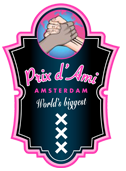The Opium Act was created to, among other things, supervise the legal international trade in drugs. The Opium Act prohibits the possession of certain substances. These substances are listed on list 1 and list 2 of the Opium Act. The production, processing, transport, sale, import and delivery of these substances are prohibited by this law. The only exception to this is the use of Opium Act drugs for scientific and medical purposes, provided that a doctor or pharmacist can justify on paper that the use is permitted.
Meaning of the Opium Act
In short, the Opium Act is legislation on the possession, use, manufacture and sale of opium substances (commonly referred to as drugs).
Opium is, in the original sense, the dried milky juice of the opium poppy. It contains a number of analgesic substances, such as codeine, morphine and noscapine. Opium and opiates have a calming and narcotic effect. They can also induce a feeling of happiness, sometimes far from reality.
Opium Act list 1 and 2
Within the Opium Act there are two so-called lists: list 1 and list 2. List 1 contains dozens of hard drugs. These are drugs with, according to the government, an unacceptable risk. List 2 includes soft drugs, in the form of hemp products and sleeping pills/sedatives. A distinction was made between hard and soft drugs (list 1 and list 2 respectively) in order to determine the difference in punishment on the one hand and to prioritize drug detection on the other.
Meaning list 1 and examples
Hard drugs are on list 1 of the Opium Act. Hard drugs are also referred to as heavy narcotics or heavy intoxicants. According to the Dutch government, hard drugs have an unacceptable risk, especially with regard to health and the addictive effect. The possession, manufacture and trade of hard drugs are punishable by law.
Examples of hard drugs on list 1 are:
- Coke
- Heroïne
- Speed
- LSD
- Ecstasy
- MDMA
- GHB (since September 6, 2011)
- 2CB
- Heavy painkillers
- Ritalin
Meaning list 2 and examples
List 2 of the Opium Act contains soft drugs, also known as light narcotics or light intoxicants. These are drugs with an acceptable risk, according to the Dutch government. Legally, the possession, production and trade of soft drugs are prohibited, but in practice possession of soft drugs in smaller quantities is not prosecuted.
Examples of soft drugs on list 2 are:
- Marijuana (weed)
- Hash
- Benzodiazepine
- Sleep-inducing and sedatives
- Hallucinogenic mushrooms (magic mushrooms)
What does the Opium Act say?
The Opium Act lists all acts that are prohibited in the field of drugs. Possession, preparation, sale and export of drugs are criminal offenses under the Opium Act. However, the use of drugs is not a criminal offense. Exceptions to this rule apply to coffee shops and medical purposes, provided that certain criteria are met.
Offenses under the Opium Act
The Opium Act describes a large number of punishable acts. The use of both soft drugs and hard drugs is not prohibited and does not lead to criminal prosecution. However, the possession, production and trade of drugs is punishable by law. The penalty depends on certain criminal law guidelines. For example, the production and trafficking of hard drugs are given the highest priority and the highest penalties. The trade in soft drugs has priority after that and is punished with slightly lighter penalties. And if someone possesses small amounts of drugs (less than 5 grams of hash and weed, 1 XTC pill or half a gram of coke), this is almost never a reason for criminal prosecution. An exception to this rule is someone causing nuisance or damage in a public space.
In summary, the use of drugs is not punishable under the Opium Act. Since production, possession and trade are punishable by law, the Dutch government focuses mainly on combating these criminal offenses.

